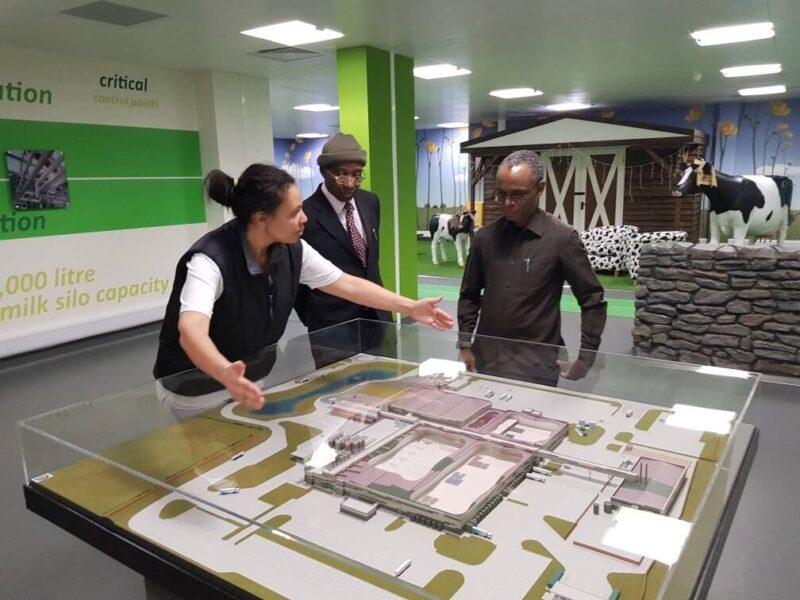Forgotten Dairies
El-Rufai’s (Un)Spilt Milk -By Olusegun Adeniyi
The collaboration between Kaduna and Arla is envisioned on a five-year project called the ‘Milky Way Partnership’ to develop a sustainable dairy value chain.

As the first to arrive for the KIF Board meeting in Kaduna on 15th August, I waited in the office of Governor El-Rufai who was having a meeting with some foreigners. As he greeted me the moment his meeting ended, it was obvious something was amiss. I asked whether there was any issue with the meeting he just held. He didn’t dissemble. “The regulatory environment in the country can sometimes be very frustrating”, he said and added, “Those guys are from the globally renowned Danish company, Arla Foods and we have been negotiating with them for the past two years on a public-private partnership that will help resuscitate the local dairy sector industry in Kaduna State. But the recent statement by the federal government has put spanners in the works.”
The statement El-rufai was referring to was the ‘directive’ by President Muhammadu Buhari for the Central Bank of Nigeria (CBN) not to sell Forex to persons in the business of importing food products into the country. El-Rufai—who explained to me how President Olusegun Obasanjo was able to ensure Nigeria produces enough cement for local needs and is now exporting the product (through a well-articulated and scrupulously managed import substitution policy)—believes the same could be done in pastoral agriculture in the country. But he also added that it would require different phases and timelines. Given how despondent he sounded, I decided I was going to write on what I thought was a botched deal with the Danes and I already had the headline in my head: El-Rufai’s Spilt Milk!
I am happy I did not rush to write given that a Memorandum of Understanding (MoU) was finally signed on Monday between Kaduna State government and Arla Foods. I am encouraged that El-Rufai eventually found a way around the challenge. While the state government will offer 1,000 nomadic dairy farmers permanent farm lands with access to water, Arla will be the commercial partner that will purchase, collect, process and bring the local milk to market. The project will primarily be funded with CBN loans guaranteed by the state while Arla, as the commercial partner, will invest in establishing the milk collection centres.
The collaboration between Kaduna and Arla is envisioned on a five-year project called the ‘Milky Way Partnership’ to develop a sustainable dairy value chain. “The partnership and project have demonstrated a viable scalable business model that has created both an increase in income and job opportunities for local farmers and employees in the dairy sector. At the Amana Dairy Cooperative in the outskirts of Kaduna, the farmers see the benefits of being part of the Milky Way Partnership. They now have steady access to water and a milking parlour has been installed to ensure that the milk is cooled down immediately after milking to preserve quality” Alhaji Sani Aliyu, one of the dairy farmers at Amana Dairy Cooperative, said on Monday.
Mr Jesper Kamp, the Danish Ambassador to Nigeria, was also effusive about the project. “The ongoing collaboration between Arla and Kaduna State Government is a great example of the positive impact EU companies can bring when they engage with local producers…This project has great potential to develop the local dairy sector and make a real difference in many farmers’ businesses and lives” he says. Mr Steen Hadsbjerg, Vice President Sub-Saharan Africa Region for Arla Foods shares his sentiment: “Bringing local milk into our product portfolio is part of the way we believe that our business will be long-term successful in Nigeria. We will only succeed in growing local farmers’ incomes, building Nigeria’s dairy sector and achieving Arla’s ambitions in West Africa if the project and its activities are commercially viable. This is a great example of business and development going hand in hand to ensure long-term sustainable solutions that are built to last.”
As things stand in Nigeria today,









